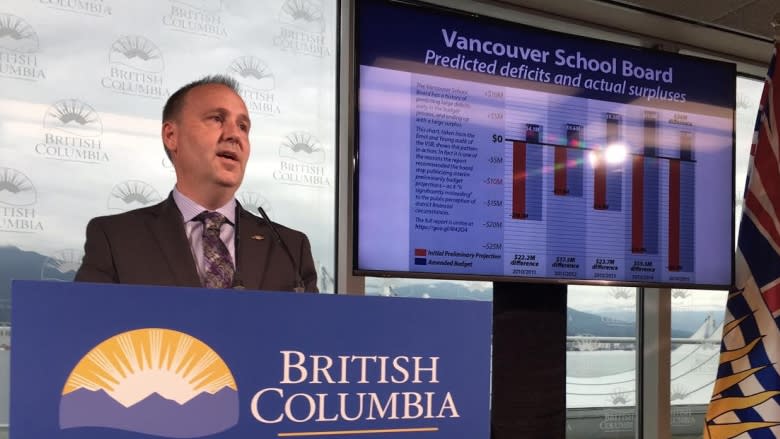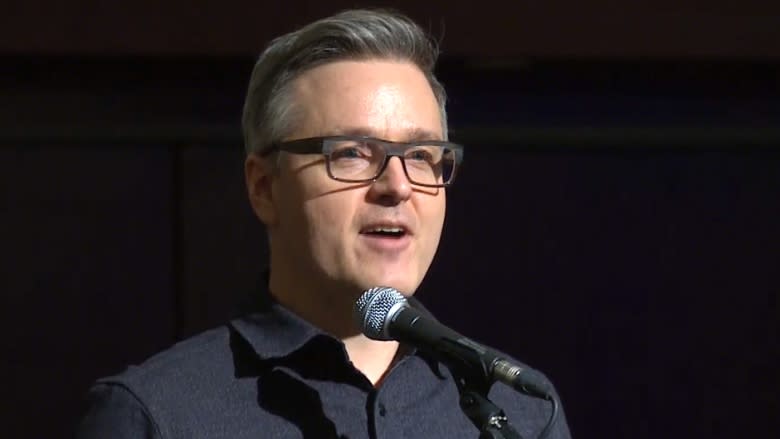B.C. considers getting rid of the traditional report card
The traditional report card may soon be a thing of the past in B.C.
The Liberal government is set to launch a province-wide consultation with parents next month to better understand how evaluations can best serve students from kindergarten to Grade 9.
"With the technology we have now in the school system, there are opportunities to have almost daily report-backs, if that is what parents choose," said B.C. Education Minister Mike Bernier.
"We want to hear from parents on what they're hoping for, on what they are expecting."
Consultation starting in September
The province promised a review of the way in which students receive feedback and evaluation as part of the overall curriculum that for K to 9 students comes into full effect for the 2016-17 school year.
Changes to the Grade 10 to Grade 12 curriculum will not be fully introduced until next year.
Provincial rules dictate that during the school year, boards of education must provide parents of students with a minimum of five reports describing how students are progressing.
"When you think about how things use to be, where you might have an interim report card and then might not find out for two, three, four months down the road," added Bernier. As a parent myself of five kids, sometimes having that early indicator and that communication with teachers is really important."
The province will be considering a number of options including more extensive one-on-one meetings between parents and students, written year-end report cards, more frequent written evaluations or various other options. The consultations will start in September.
Teacher workload
The B.C. Teacher's Federation is hoping that teachers will be included in the changes to the evaluation process as well. One concern from the BCTF is that the changes could add on to the already extensive workload teachers have.
"It's important for parents to get information that is timely, relevant, easy to understand, how far their children have advanced, and where they need to go next. It could take a variety of forms," said BCTF president Glen Hansman.
"We just don't want to be in a situation where with all the changes to the curriculum at the same time, we don't add another layer of complexity."



